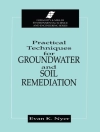Approximately 3 million gallons of oil or refined petroleum products are spilled into U.S. waters every year. Oil dispersants (chemical agents such as surfactants, solvents, and other compounds) are used to reduce the effect of oil spills by changing thechemical and physical properties of the oil. By enhancing the amount of oil thatphysically mixes into the water, dispersants can reduce the potential that a surfaceslick will contaminate shoreline habitats. Although called for in the Oil Pollution Actof 1990 as a tool for minimizing the impact of oil spills, the use of chemical dispersantshas long been controversial. This book reviews the adequacy of existing informationand ongoing research regarding the effectiveness of dispersants as an oil spillresponse technique, as well as the effect of dispersed oil on marine and coastalecosystems. Oil Spill Dispersants also includes recommended steps for policy makersfaced with making hard choices regarding the use of dispersants as part of spill contingencyplanning efforts or during actual spills.
Committee on Understanding Oil Spill Dispersants: Efficacy and Effects & Division on Earth and Life Studies
Oil Spill Dispersants [EPUB ebook]
Efficacy and Effects
Oil Spill Dispersants [EPUB ebook]
Efficacy and Effects
Beli ebook ini dan dapatkan 1 lagi PERCUMA!
Bahasa Inggeris ● Format EPUB ● Halaman-halaman 396 ● ISBN 9780309156257 ● Penerbit National Academies Press ● Diterbitkan 2005 ● Muat turun 3 kali ● Mata wang EUR ● ID 7149453 ● Salin perlindungan Adobe DRM
Memerlukan pembaca ebook yang mampu DRM












